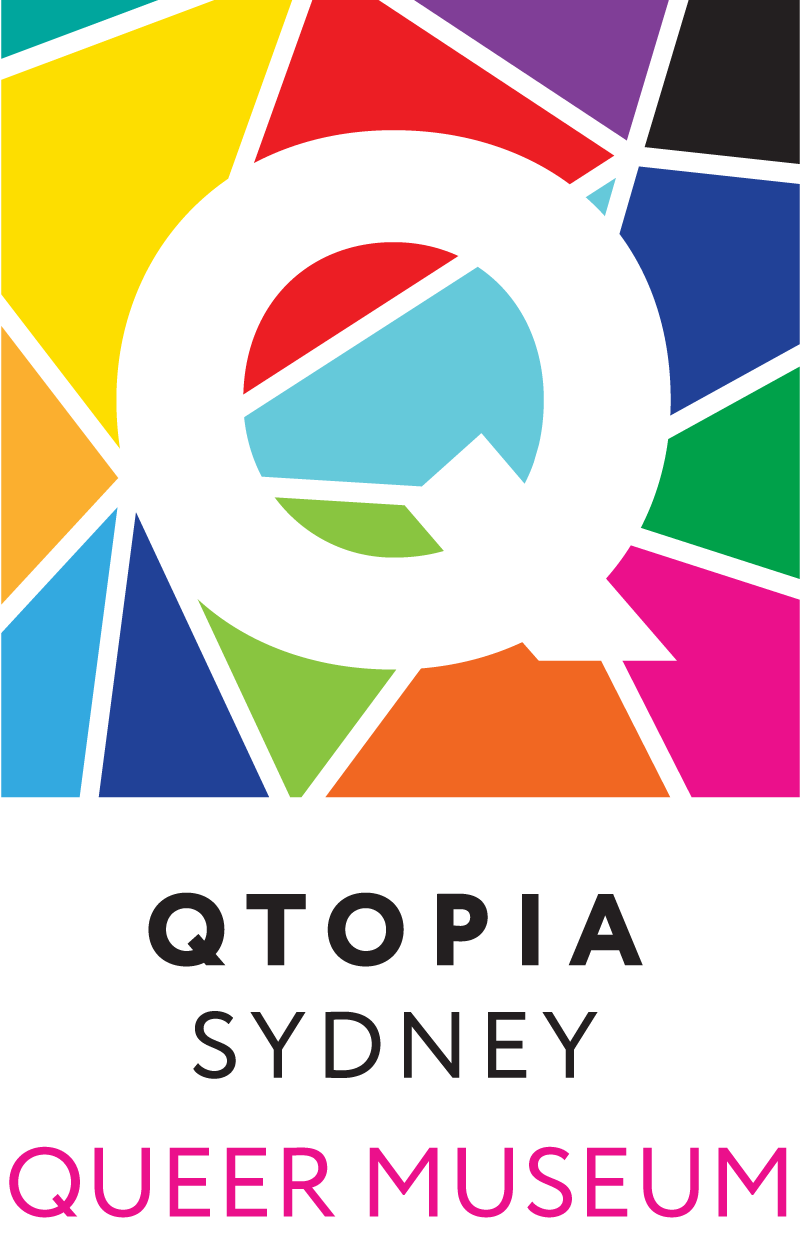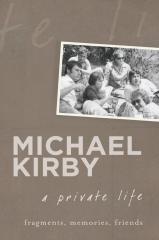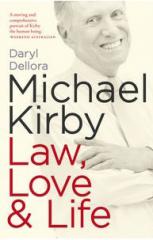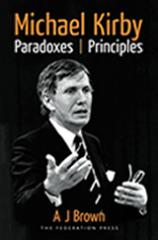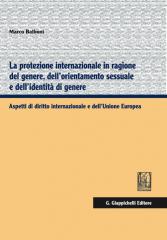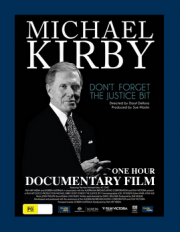Gently Vegan chats to the Honourable Justice Michael Kirby about his journey with a diet that is pesco-vegetarian, animal rights and inherent human kindness.
With a legal career spanning four decades, Michael Kirby is a man who commands deep respect. As one of Australia’s leading High Court Judges he was at the bench 34 years, stepping down just prior to his 70th birthday in 2009.
Both in and out of the courtroom, he has been a change maker in Australia, championing the marginalised and vulnerable populations in our society.
Now in retirement, he is supporting the most vulnerable of all populations - the animals who share our planet yet have no voice of their own, to argue the law for them, to elicit change at the highest level and raise awareness in the general public.
It is this fervent passion for, and commitment to, animal welfare that finds us in discussion with him today.
Gently Vegan: How did you become a patron of the animal protection institute, Voiceless?
Michael Kirby:
I am so proud to be one of the patrons of Voiceless. My journey began after reading a legal publication on animal welfare in Australia and New Zealand. It was an academic book, written by University scholars in Queensland. Voiceless was associated with this publication, which enabled me to come into contact with the group.
Voiceless has given me the opportunity to see the mobilisation of action into animal welfare issues, which has been most useful.
GV: You launched the book Animal Law in Australasia for Voiceless at Sydney University in 2009. What effect did this book launch have on you?
MK: It was the revelations that I received in reading that book, in particular the cruelty involved in the farming of poultry, that convinced me that I must give up eating meat. I haven’t eaten meat since that night. In fact the thought of eating meat is now completely revolting to me.
Once we are aware of the science of sentient beings it is difficult to see animals as ‘things’. They are creatures that share the living experience with us. We are able to see this in domestic animals and can feel outrage over the mistreatment of dogs, cats and even horses.
We know all animals exhibit a range of emotions similar to our own; they feel love, joy, jealousy and fear. Therefore the reality is, farmed animals share the same connection to life as we do. They also deserve a share of our outrage.
GV: At the age of 70, was it difficult to let your family and friends know that you were set to give up eating meat?
MK: Not really. Having been a judge for 34 years, I was used to having my own point of view on cases and my duty to give effect to that point of view, whatever other people might think.
It has been a bigger challenge for my partner, Johan, who is the “Commander of the Kitchen”, as I no longer would eat meat meals prepared in our home.
In his native Netherlands’ frankness, Johan put forward his belief that the human brain owes its development to the eating of meat.
However I believe that, with the expansion of the human brain, increased reasoning and moral sense have emerged. Therefore we can adapt our behaviors with the knowledge we secure.
This knowledge includes the cruelty we inflict on other sentient beings. The truth is, that we need to face up to the fact, that processed animal parts were once living, breathing creatures who have endured fear and a painful death to deliver food to our tables.
It is the reflection on this that is necessary; we need to break the cycle of human belief that meat comes ready packaged in a supermarket. Animal parts are not yet developed in an artificial way. The fact is there is an entire cruel, prolonged process that involves the extreme suffering of another creature. To the greatest extent possible we have to reduce that.
GV: Do you feel healthier with this diet change?
MK: [Smiles] I did think when I went off meat, I would be slim and trim and gorgeous. Sadly in my 70’s, I don’t believe this has happened!
One thing I did notice, in regular blood tests, was that my vitamin B levels had fallen. I take a supplement for this and I don’t think it’s a big deal. It’s just about monitoring your health and having awareness. You can have a very interesting and varied diet without eating meat, or for that matter fish. Johan makes wonderful lentil soup. Really, a vegetarian diet is a case of balance, good sense and moral thinking.
GV: How would you encourage other Australians to consider their food choices?
MK: I feel very guilty that I am not completely vegetarian. However, I am on my way. It is possible, in this way, to appeal to ordinary Australians. Mostly, they are very practical people and don’t like the idea of animal cruelty.
The concept of at least a “Meat Free Day every Week” is a start in the right direction. This actually happens in United Nation’s cafes that I have visited in Geneva. The signs in the café say “Have a meat free day every week”. The food at lunchtime is well labeled to clarify what meals are vegetarian. This message sticks in your consciousness.
I would encourage all big corporations to make responsible labeling easy for consumers. For instance, I am disappointed with Qantas. I have urged Qantas to put “V” next to soups and other food on their airline menus showing they don’t have chicken stock as a base etc. You would think I might have some influence as a super frequent flyer. Sadly, they have not listened to me.
It shouldn’t be difficult and as our national carrier, they should be in step with other airlines, such as British Airways who feature “V” for vegetarian on all their menus. This labeling is something I am not giving up on! It’s a human right and also an animal right!

